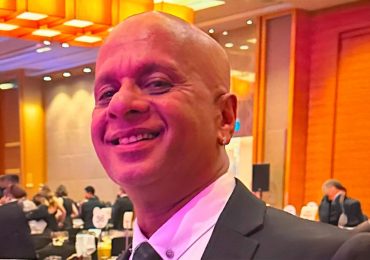Photo Courtesy of: Franklin Eugene
Behind the red carpets, flashbulbs, and catwalks lies a harder truth: the fashion industry is among the most resource-intensive on Earth, and the film industry remains one of the least equitable. Both are bastions of influence – cultural powerhouses that shape identity, aspiration, and belonging – but they often operate without scrutiny or meaningful inclusion. In the intersection of these worlds stands Franklin Eugene, a designer, filmmaker, and global advocate an American businessman, internationally awarded fashion designer, multiple award-winning film producer, activist, Global Patron of the Arts, and humanitarian who has spent the last 15 years challenging not just how we dress, but why we dress – and who gets to be seen.
Best known for his signature Eight Button Arm Cuff Suit and critically acclaimed documentary work, Eugene has built a global lifestyle platform from the ground up. What distinguishes him, however, is not just craftsmanship or vision. It is a sustained commitment to global equity, narrative truth, and creative excellence across continents and mediums. His career presents a case study in how a single creative force can reshape industries too often driven by exclusion and spectacle.
A Brand Rooted in Purpose, Not Profit
Founded as a bespoke menswear label, Franklin Eugene International LLC has since evolved into a multi-industry enterprise encompassing fashion, film production, and philanthropic partnerships. The company’s flagship collections: Masculine, Peerless, Tribute, and Resort, are designed with storytelling at their core. Rather than simply releasing seasonal trends, Eugene’s collections speak to archetypes of resilience, grace, and identity.
The Tribute Collection, for instance, was created in support of charitable organizations in the Middle East, North Africa, and India. A portion of proceeds from each garment directly benefitsed grassroots efforts in these regions. Eugene’s philosophy is simple but forceful: “We can design for beauty and for impact. These don’t have to be separate goals.”
It’s a rare position in an industry that thrives on surface-level impact. Fashion accounts for over $1.7 trillion in global revenue, but only a fraction of that wealth flows into ethical labor or sustainability. Eugene’s model counters that trend by pairing high design with measurable outcomes. His Dubai atelier and Italian production partnerships emphasize small-batch craftsmanship over mass production. And his brand ambassadors reflect a diversity of body types and cultural backgrounds rarely seen in European luxury fashion.
From Tailored Lines to Film Reels
While Franklin Eugene’s suits have turned heads from Milan to New York, his influence extends beyond fabric. In 2018, he produced Love, Gilda, a documentary chronicling the life of comedian Gilda Radner. The film opened the Tribeca Film Festival and earned critical acclaim for its sensitive treatment of mental health, cancer, and legacy. Eugene has since continued to fund and support independent cinema that explores the margins of identity, morality, and memory.
His feature short film The Shepherd garnered multiple awards on the international circuit, including recognition for direction, cinematography, and moral storytelling. Rather than chasing formulaic blockbusters, Eugene has consistently prioritized stories that center overlooked communities and lived experiences. He was a principal producer on IL MORO, which won multiple international awards and centers the first black Western European head of state, Alessandro de’ Medici, the Duke of Florence. This is storytelling with a pulse, work that resonates across borders and across the socio-political divide.
In 2025, his influence was further cemented with his appointment as the United States Ambassador for WeShort, a global platform for short films often dubbed “the Netflix of short form.” The appointment is symbolic and strategic, placing Eugene in a position to elevate emerging filmmakers worldwide. “We have to open the pipeline,” he said, “not just to the screen, but behind the camera. Inclusion isn’t about optics. It’s about authorship.”
The Business Case for Moral Leadership
This may sound idealistic, but data suggests otherwise. Consumers are demanding more from brands, particularly Gen Z and Millennial audiences who make up over 60 percent of the global fashion market. According to industry reports, 79 percent of consumers under 35 prefer to purchase from companies that support social or environmental causes. Meanwhile, short-form video streaming has exploded, with platforms like TikTok, YouTube Shorts, and WeShort experiencing double-digit growth year over year.
Franklin Eugene sits at the intersection of both these megatrends. His fashion business, while is privately held andf and discreet about revenue, serves thousands of clients across North America, the Middle East, and Europe. His social media presence and website traffic indicate high engagement among consumers searching for purpose-driven brands. And while he avoids traditional e-commerce in favor of a high-touch, appointment-only model, his reach continues to expand.
More significantly, Eugene’s narrative control, across both film and fashion, offers a model for independent creatives looking to build sustainable, ethical platforms without institutional backing. This is not a house of cards built on influencer deals or runway hype. It is a global brand structured around integrity.
Facing the Industry’s Unfinished Business
Still, challenges remain. Eugene’s insistence on diversity and dignity stands in contrast to industry norms. The fashion world, despite recent strides, remains overwhelmingly white at the executive level. Luxury fashion houses continue to source cheap labor while championing performative campaigns of inclusivity. Hollywood, for all its progressive self-image, remains a space where less than 15 percent of directors come from nonwhite backgrounds.
Franklin Eugene’s success, then, is not just a personal triumph. It is a quiet indictment of the systems around him. He has succeeded without shortcuts and without compromising vision. And in doing so, he has forced a reckoning.
Legacy Woven with Intention
Franklin Eugene is not simply the man behind the eight-button cuff. He is the architect of a broader proposition – that style and storytelling can be tools of justice, beauty, and belonging. His collections speak of strength that is refined, not aggressive. His films make space for grief, memory, and transcendence. His business model prioritizes partnership over exploitation.
The fashion and film industries are at a crossroads. Calls for accountability, equity, and authenticity are no longer peripheral, they are defining the future of creative enterprise. In that field, Franklin Eugene’s body of work does not merely inspire. It instructs. He shows that when fashion honors craft and conscience, when film amplifies voices rather than exploits them, and when leadership is grounded in purpose, legacy is not an aspiration. It is the natural result.
And that legacy is already unfolding, one story – and one stitch – at a time.














